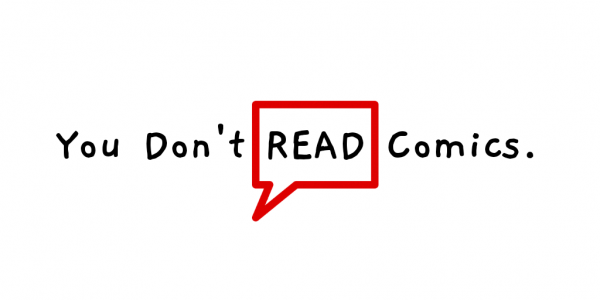I Hate Fairyland #17 // Review
The little kid with the blue hair and the eyepatch marches into town on a haggard, looking unicorn. She announces that she's Happy. (That’s her name.) She’s not happy, though. There’s something seriously upsetting her and it just might have something to do with a newly-minted hero in I Hate Fairyland #17. Writer Skottie Young marches toards the midpoint of an endgame with artist Brett Bean and colorist Jean-Francois Beaulieu. The silliness of the series calms down a bit in a tale that ratchets-up some of the genuine drama that’s mixed-in with all of the weirdness.
Naturally, Gertie is a bit upset about the sudden arrival of Happy. She’s just started getting accustomed to the idea of being a hero and now she’s suddenly having to deal with the return of someone she killed. And this was a serious killing. The ground opened-up on Happy and everything. There was no way that she would have been able to survive, that was there? So who is she suddenly back and why is she so upset...aside from the fact that she had just been dead and the girl who killed her is now considered a hero? Precisely what is the deal with Happy?
Young walks the fine line between comedy and drama in a series which continues to have some level of weight and intensity about it. It's not an easy line to walk. He seems to be teetering in various directions at one point or another. Just win the comedy seems like it's getting a little out of hand of the intensity of the drama moves up and tears it away from, collapsing over the edge. And it just when the drama feels like it's going to run everything to a halt, there's some bizarre aspect of what is that's going on that forms itself into its own weird sort of comedy and everything continues. It's weird to think this series has been going on for as long as it has in this fashion.
Bean amplifies the motion beautifully in another issue which really does have quite a bit going for it. The sense of magic continues to whimsically drift across the page as occasional bits of brutality ring out. The soft edge that Beaulieu continues to bring to the page has a degree of whimsy about it that continues to give this particular title its own distinctive personality that seems to transcend the fundamentals of the story.
At the center of it all, Gert is really developing. There truly is a character arc going on here. In the midst of the weirdness. She is becoming someone other than she was at the beginning of the series. And this is not something that often happens to much more successful, but characters. That's really cool to see it happened to somebody who you wouldn't expect it to happen to. After all, she is very cartoonish. One would expect her to have a very flat personality in comparison to show many of the rest of the enhance of pages and panels all over the comic book rack. It's nice to see someone who's actually changing.










